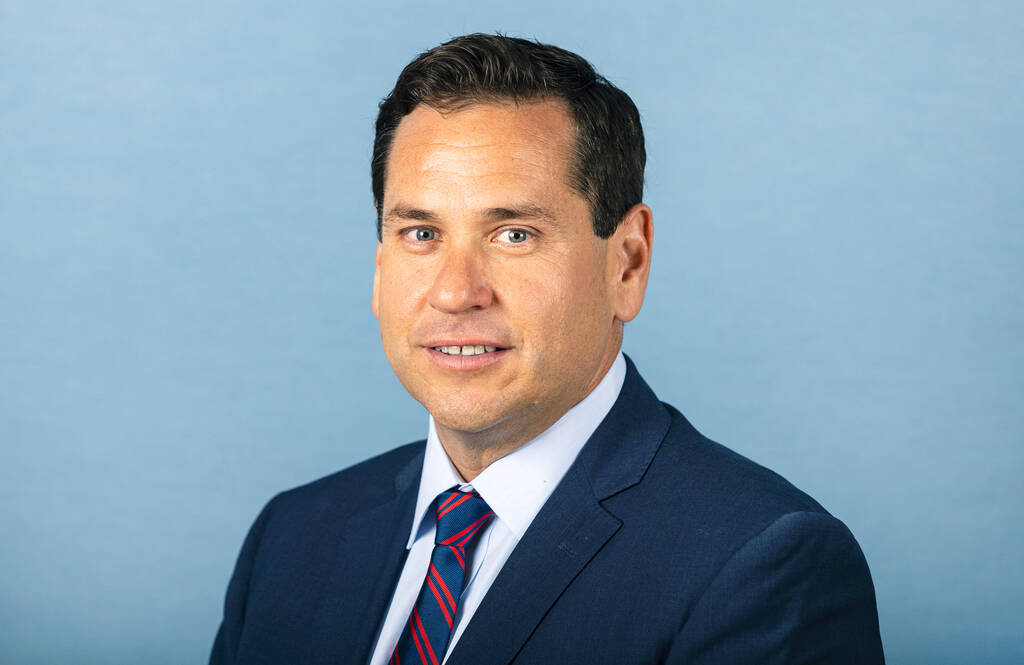If bill passes, threatening an election worker would bring prison time
Legislative committees approved several bills Thursday to make changes to Nevada elections, ranging from prohibiting paper ballots to protecting election workers from threats or intimidation.
The Senate Committee on Legislative Operations and Elections pushed forward on Thursday several bills that will next go to the Senate floor.
The committee unanimously passed Senate Bill 406, introduced by Democratic Secretary of State Cisco Aguilar, which would make it a felony for any person to threaten election workers.
If passed, anyone who attempts to use any force, intimidation, coercion or violence on an election worker with the intent to interfere with the performance of their election-related duties could be sentenced to not less than one year and no more than four years in prison.
“We can have all the technology in the world, we could have all the resources in the world for elections. But they only work because of the human component,” Aguilar said in an interview with the Review-Journal on Wednesday.
“We have to make sure that election workers feel safe,” he continued. “And that when they’re out recruiting potential employees, that those employees know the environment is safe. Nobody wants to go to work in an environment where they feel unsafe.”
Paper ballots banned
The Assembly Legislative Operations and Elections Committee approved Assembly Bill 242, which would ban the use of paper ballots at in-person voting centers, instead requiring all voting to be conducted on machines. Also, the bill specifies that all ballots be counted using machines, and not hand-counted.
The committee’s Democrats voted unanimously for the bill, but Republicans Jill Dickman, R-Sparks, Rich DeLong, R-Reno, Brian Hibbetts and Richard McArthur, both R-Las Vegas, voted no.
The committee also approved on a party-line vote Assembly Bill 394, which requires the secretary of state to create a procedure to certify election results if a city or county hasn’t completed its required canvass by a deadline. It would also specify that ballots could only be counted once, except in cases of a recall or audit.
Those bills go the Assembly floor.
Polling places in jails
The Senate elections panel also heard Senate Bill 162, introduced by Sen. Melanie Scheible, D-Las Vegas, which would establish polling places in county and city jails.
The legislation aims to ensure that anyone eligible to vote who finds themselves in custody or in a detention center is still able to vote, Scheible said. It would apply to people who have been charged with a felony, have no prior felonies on their records and are presumed innocent until proven guilty, she said.
“We’re talking about people who may be temporarily detained pursuant to criminal charges, particularly people who are awaiting a trial,” she said.
The bill was amended to say every law enforcement agency that administers a jail or detention center must develop and implement a policy on voting in the facility. It must allow every eligible voter to cast a ballot, and includes coordination with local election officials to carry out the provisions of the policy.
Those who spoke against the bill brought up concerns with criminals voting.
“When we pass a bill like this… we should consider what it does to the public trust and confidence in elections, and the way that I see this as written, this is not something that will strengthen the public trust,” said Eddie Facey, a Republican who ran unsuccessfully for Assembly District 42 in 2022.
Meanwhile, the Assembly elections committee approved a similar bill sponsored by Assemblywoman Brittney Miller, D-Las Vegas. Assembly Bill 286, as amended, would require county clerks and jail administrators to establish procedures for in-person voting in jails during early voting and on Election Day.
And members also approved Assembly Joint Resolution 6, which would join Nevada to the National Popular Vote Compact, an agreement among states to award their Electoral College votes to the winner of the national popular vote, regardless of the winner in individual states.
Native bills
The Senate’s elections committee also approved two bills that affect Native communities. Senate Bill 216 would add a tribal liaison in the secretary of state’s office, would require each county and city clerk to establish a working relationship with Native tribes in their jurisdictions and authorize Nevada’s Effective Absentee System for Elections to include tribal voters.
And Senate Bill 327 requires a county or city clerk to establish a polling place and ballot drop box on a Native reservation or colony, unless the tribe opts out by submitting a notice to the clerk.
Contact Jessica Hill at jehill@reviewjournal.com. Follow @jess_hillyeah on Twitter.

















